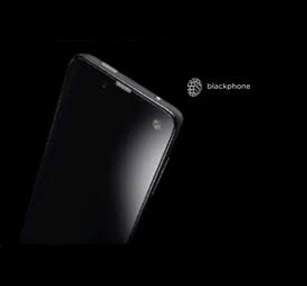A Switzerland-based technology venture is building a smartphone designed to make users’ texts, phone calls, and mobile web searches more secure.
The device, known as “Blackphone,” is the creation of two tech companies: Silent Circle, a subscription-based service that, for a monthly fee, encrypts members’ mobile activities and messages sent to other Silent Circle members; and GeeksPhone, a smartphone producer that gives users more choice in determining their phone specs, such as by allowing them to select their own mobile OS.
The new smartphone runs a customized version of Android known as “PrivatOS,” software which offers support for encrypted texts, phone calls, and videochats. Aside from a few added layers of security, however, PrivatOS is basically the same software to which Android users are already accustomed.
Among other things, Blackphone integrates a number of Silent Circle encryption apps, uses a VPN—a private network which extends a public network across the Internet, allowing users to access the web securely—to anonymize users’ web searches, and issues Secure-Over-The-Air (SOTA) updates instead of via potentially unsecure sites such as Google Play.
The phone is slated to come out February 24, 2014.
Notwithstanding the hype surrounding the phone, there is some cause to wonder whether Blackphone will be as revolutionary as some are claiming it will be. For instance, the NSA conducted its extensive surveillance campaign mainly through phone carriers, which collect the phone and data records of each device on a daily basis. This suggests that, while Blackphone may prevent data surveillance on the smartphone itself, it cannot alter the carrier-device relationship in which information from the latter is constantly being transmitted to the former.
Additionally, some have argued that, in order for the phone’s Silent Circle software to work, users must be communicating only with other Silent Circle members. Otherwise the encryption software will presumably not work.
The makers of Blackphone have responded by issuing the following statement:
Most network activity on a typical smartphone is not actually phone calls. Internet activity forms the bulk of network traffic, and Blackphone still improves the privacy of such traffic for an isolated, individual user. Also bear in mind that the various encryption tools on Blackphone are at the service level, not the device level, which means you can use all those services with other phones.
Will the Blackphone end up being “NSA-proof,” as some supporters have suggested? Probably not. But the phone will be important to the extent that it will encourage users to actively engage in protecting themselves in cyberspace. Among other things, Blackphone promises to personalize individual users’ mobile experiences and to allow them to share what they want with data-collecting entities, such as advertising businesses.
The Blackphone will be a welcome addition to our post-Snowden world. But the question remains: will it live up to its full potential?
 David Bisson |
David Bisson | @DMBisson
Bio: David is currently a senior at Bard College, where he is studying Political Studies and writing his senior thesis on cyberwar and cross-domain escalation. He also works at the Hannah Arendt Center for Politics and Humanities at Bard College as an Outreach intern. Post-graduation, David would like to leverage his extensive journalism experience as well as his interest in computer coding and social media to pursue a career in cyber security, both its practice and policy.
The opinions expressed in this post belongs to the individual contributors and do not necessarily reflect the views of Information Security Buzz.



